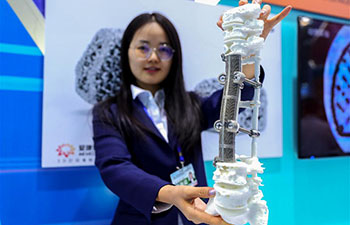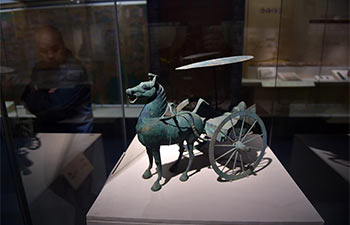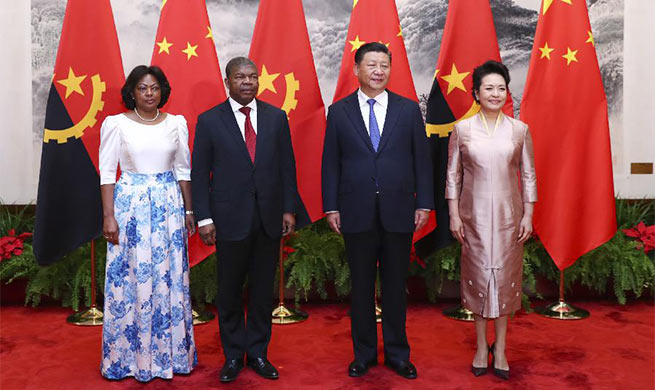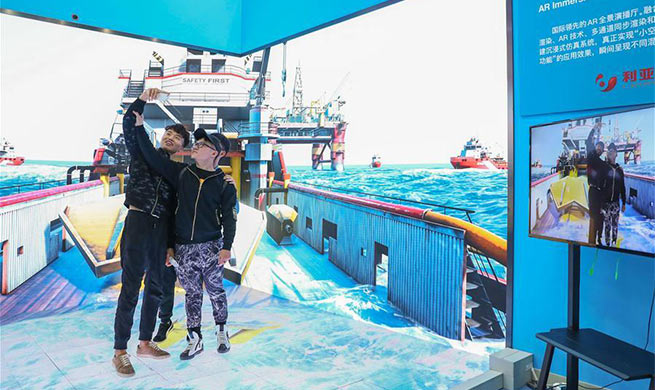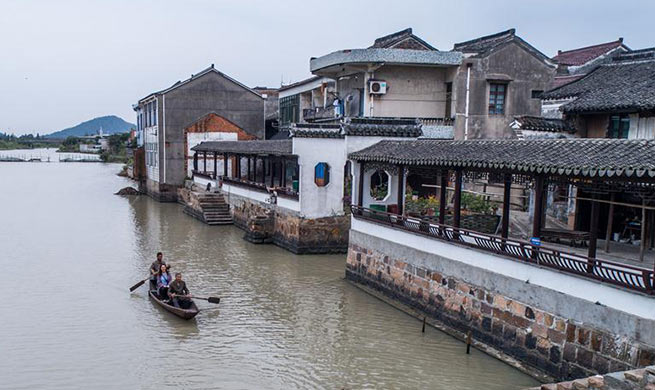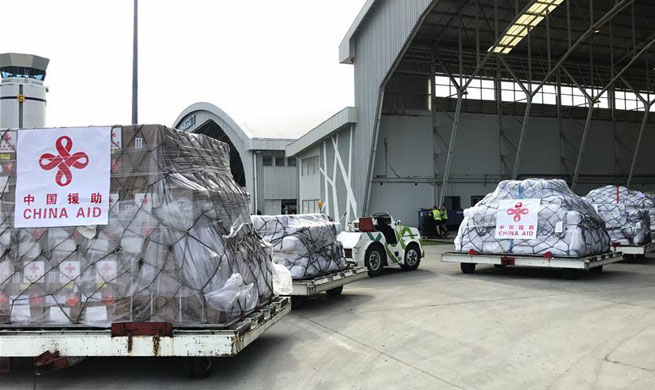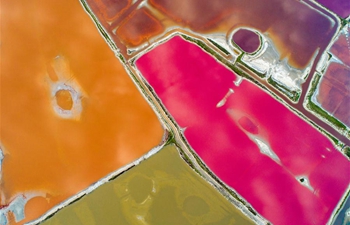by Noemi Galban, Raimundo Urrechaga
HAVANA, Oct. 9 (Xinhua) -- Five-year-old Carlos Landrove has been hospitalized at Cuba's National Institute of Oncology and Radiobiology (INOR) in Havana for more than a year, undergoing cancer treatment.
Yet despite months of chemotherapy and radiotherapy and a lack of access to some of the world's best cancer medicines, Carlitos, as he likes to be called, is a typically cheerful boy.
"The doctors treat me very well and soon I'll return to my home in Holguin," he told Xinhua as he played with other children in the pediatric ward, which employs more than a thousand people, including 189 specialized doctors.
Each year between 300 and 400 cases of pediatric cancer are treated at the hospital, a challenging task made even more difficult by the nearly six-decade U.S. trade embargo, which limits Cuba's access to advanced medicines and technologies.
According to Dr. Mariuska Forteza, a pediatric cancer specialist at INOR, in the past year there have been cases of young patients with severe central nervous system tumors whose treatments have been undermined by a lack of Temozolomide, a first-line chemotherapy drug for infants.
The embargo, or blockade as it is commonly referred to in Cuba, cuts the island off from potential suppliers.
"We do not have this drug due to the blockade, because the patent is American and they do not allow us to even buy it in other countries," said Forteza.
As an alternative, children receive a Cuban monoclonal antibody called Nimotuzumab.
"With this alternative treatment, infants have registered an increase in survival rate of between approximately 49 and 50 percent in the patients we have studied in the last five years," she said.
The U.S. policy impacts all aspects of Cuba's socio-economic life, hitting the healthcare system the hardest because the service is free for all Cubans.
According to an annual report to be presented to the United Nations General Assembly at the end of this month, the cumulative impact on this sector since 1961 amounts to nearly 3 billion U.S. dollars.
Since it is a specialized medical institution, INOR treats complex cancer cases, the kind that often require new medications, surgical technologies and equipment the blockade puts out of reach.
"The blockade directly and wholly affects the treatment of cancer patients in Cuba," Dr. Erasmo Gomez, medical director at INOR, told Xinhua.
In a recent exchange with foreign media organizations, Gomez said "U.S. technology is very advanced and in the last months of the Barack Obama administration there was direct contact from several U.S. companies willing to sell these technological elements to Cuba."
However, Obama's successor, Donald Trump, rolled back bilateral ties and tightened the embargo, again limiting Cuba's access to technology or drugs developed in the U.S.
Gomez cited a program to save the lower limbs of children with bone cancer by implanting extensible prostheses that replace the extracted bone. These are expanded over time with joints, allowing infants to grow.
This technology, emphasized the doctor, is only manufactured in the United States and Europe, but European companies that could sell the prosthesis to Cuba face millions in fines because they contain U.S. parts or technology and that would represent a violation of the embargo.
"We have to amputate the lower limbs of these children because the American pharmaceutical companies that have this product can't sell it to any Cuban company or hospital," said Gomez.
Dr. Alberto Cespedes, former director at INOR and member of the board of directors, recalled that during the last two years of the Obama administration there was a tangible change in ties that led to intense medical and scientific exchange.
"Under the current U.S. administration, new barriers have been placed to that rapprochement and unfortunately patients from both nations are affected. It would be rational to have scientific and medical relations between our countries and leave politics aside," he said.
In this regard, Cespedes referred to Cuba's attempts and the interest of U.S. institutions to reach viable agreements to conduct clinical trials and commercialize anti-cancer drugs produced on the island.
The effectiveness of some of these drugs, such as the therapeutic vaccine against lung cancer CIMAvax-EGF, and another against basal carcinoma skin cancer called HeberFERON, have caught the attention of the international community.
"It could be an effective way to cooperate and provide better quality of life to patients in both countries," he added.
On Oct. 31, Havana will for the 27th time present the UN General Assembly with a non-binding resolution condemning the unilateral trade embargo, which year after year receives the overwhelming support of the international community.
Last year, only the United States and Israel opposed the resolution, while 191 countries condemned Washington's outdated policy towards the Caribbean nation.
In its annual report to the UN, Havana noted the embargo costs Cuba billions, with losses totaling more than 4.3 billion U.S. dollars between April 2017 and March of this year.
At the same time, the "persecution" of Cuban financial transactions, banking and credit operations, and the island's trade ties with other nations, has intensified.

